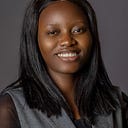How a Book is Inspiring my Research Trajectory
Title: Media across the African Diaspora

In January I spent some time reading a book on the African diaspora and the media. I did enjoy this thought-provoking compendium of scholarly work from diverse scholars in the communication space as it addresses issues that bother Black’s media culture, their representation in the media, and perceptions of these representations
In this article, I share my thoughts emanating from the book that I have been ruminating about and currently informing my research trajectory as a health communication researcher interested in addressing health issues with the strategic use of communication tools.
The book brought to bear the long tenuous past of African Americans (including Africans in Canada) and the avenues and tools they have utilized to bring their struggles to the limelight against ‘corporate power, political elites, and the government’. (p.15)
One such tool is the media- newspapers, cable television, etc. These tools were not merely tools for observation, but ‘active facilitators, monitors, participants, and originators of public conversation’ about black experiences. (p.15)
Now considering the current saturation of media, especially social media, I have observed (and still continue to observe) how individuals, social groups, NGOs, and corporate organizations have utilized these powerful tools to amplify their voices on matters that matter to them and even attract solidarity from different parts of the world.
Vivid examples are Black Lives Matter, #MeToo, #ENDSARS, etc. And while wide and public awareness about each group’s agitations is always successfully achieved, I also notice the social changes taking root. I believe one such is institutionalizing the ‘Diversity and Inclusivity’ bureau in diverse organizations which for instance my department where I currently run my program has embraced and I honestly appreciate.
With these and a plethora of other examples, I am fully persuaded of the developmental potential of the media.

But I wonder and keep asking- how can these tools be utilized in healthcare? What communication strategy in the healthcare space can propel inclusivity across social classes, races, and other social stratifications? What culturally sensitive solutions are required and what is the role of the media (or communication tools) in this play? And then, when these solutions are created, how can we successfully communicate them to individuals considering their peculiarities and identities?
Moreso, I am specifically interested in underserved communities because I believe that they are more hurt by health inequities and inequalities that are plaguing our society.
As an instance to buttress my point, in a study about COVID-19 and Nigerian culture that I conducted in 2022, I spoke with a few Non-governmental organization founders and health policy experts. They expressed their disappointment and dissatisfaction regarding the types of COVID-19 messages/campaigns that was predominant in the media during the peak of the pandemic in 2020.
They either revolved around the number of COVID-19 deaths or fear-framed enforcement of its precautions. In a culturally diverse culture such as Nigeria, they believed that the messages were not tailored to the uniqueness of or at least the three major cultural ethnic groups, and very glaring social class dichotomy in Nigeria.
And in fact, the approach adopted by Nigeria Centre for Disease Control and Prevention (NCDC) to create awareness was strictly digital and the SMS blast which is a worthy initiative was only in the English Language. I would be presenting my findings soon at the Central States Communication Association Conference which I am very excited and honored to do.
Additionally, the book got me thinking about the importance of studying holistically the intersection of structures or certain indicators as a framework to understand the real challenges and intricacies of African healthcare which would simultaneously reveal their inherent and sustainable solutions.
Specifically, I posit that the intersection of the lack of adequate use of communication tools, culture, and class (socio-economic especially) is a useful diagnostic framework to understand the problem and implement reforms. In fact, I am currently reading and researching this area and hope to share my finding soon.
As I conclude, the book inspired some research ideas that I’d hope to explore in the future or that other researchers can take advantage of. Some include juxtaposing Tyler Perry and African-based film such as Nollywood to highlight the differences and similarities between African and African American movies.
This would be useful to understand how media productions from Africans in the diaspora adequately (or incorrectly) represent African culture and how best to do that.
Lastly, I would also be interested in understanding how Africans in the diaspora who decide to return home after a while abroad make sense of their transitioning, navigate the new structures, and cope with the ‘cultural shock’.
